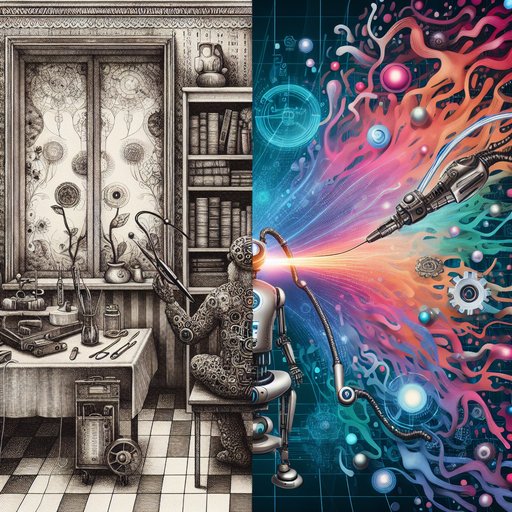 Today, we stand at the precipice of a technological revolution where artificial intelligence (AI) and robotics are poised to upend the practice of medicine. As we hurtle into this brave new world, it’s worth recalling the journey that led us previously, exploring how these cutting-edge technologies evolved and envisaging how they might transform healthcare over the coming decades.
Today, we stand at the precipice of a technological revolution where artificial intelligence (AI) and robotics are poised to upend the practice of medicine. As we hurtle into this brave new world, it’s worth recalling the journey that led us previously, exploring how these cutting-edge technologies evolved and envisaging how they might transform healthcare over the coming decades.
The birth of robotics can be traced back to the 1950s with George Devol's invention of Unimate, the first industrial robot. In the realm of medicine, the first robot-assisted surgery was pioneered by PUMA 560 in a neurosurgical biopsy procedure in 1985. Meanwhile, the concept of artificial intelligence dawned with the creation of the programmable digital computer during the 1940s. Over the decades, AI evolved from rule-based systems to machine learning during the 1990s and the adoption of deep learning techniques in the mid-2000s.
Eventually, AI was employed in healthcare with the development of computer-assisted diagnosis systems. The turn of the century saw an accelerated convergence of AI and robotics in healthcare, ushering in a new era of AI‑driven diagnostics, robotic-assisted surgeries, and drug discovery. The use of robots in surgery became less novel and more successful over time, capturing headlines with the da Vinci Surgical System's precision and minimally invasive techniques. Concurrently, AI applications expanded to include not only diagnosis but also prognosis prediction, anomaly detection, and individualized treatment plans.
IBM's Watson garnered significant attention in medical AI for its ability to digest vast amounts of medical literature and help doctors make informed treatment decisions. Soon, AI began to creep into the realm of drug discovery. BenevolentAI and DeepMind have made intriguing strides towards utilizing AI for identifying novel biomarkers, discovering new drugs, and repurposing existing ones—significantly reducing both time and cost. Peering into the future, we can envision AI deepening its influence on diagnostics with ever-more-accurate prediction models and image recognition algorithms.
The robotic surgery field might grandly leap to incorporate exquisite haptic feedback, unleashing a new level of precision and certainty. Drug discovery could witness the advent of AI-created drugs, wherein the entire process—from initial hypothesis generation to clinical trials—is handled seamlessly by AI systems. Moreover, personalized medicine could see a seismic shift with AI taking into account our unique genetic makeup to devise customized therapeutic interventions. As we stand at the cusp of this technological tour de force, we must ensure that these advancements make healthcare more equitable rather than exacerbating existing disparities.
As we keep striding towards the future, we must hold the conviction that technology serves humanity, and not the other way around.












































